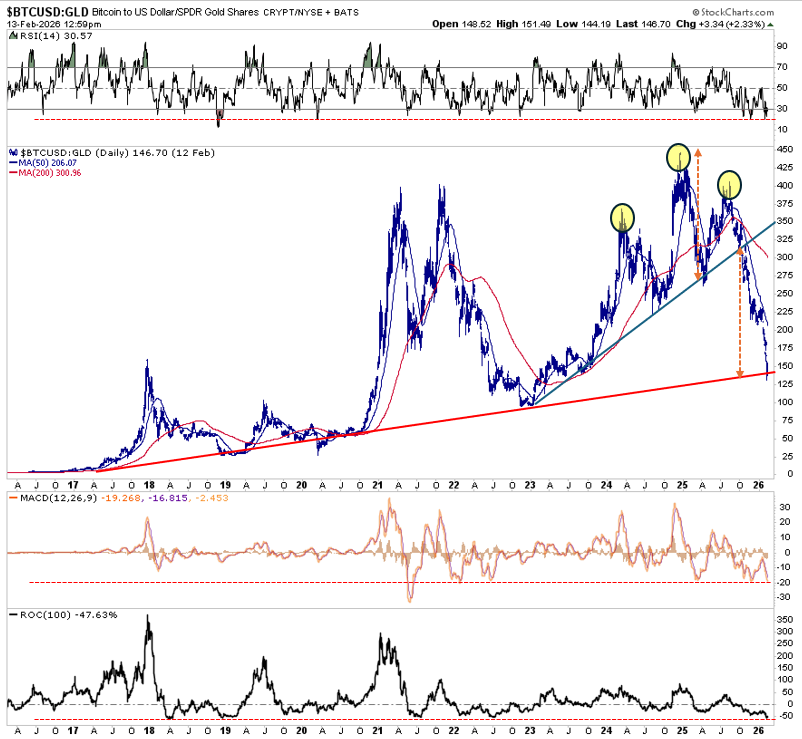Part I of II
There is no question that gold owners have been finally and spectacularly vindicated over the last months: the “barbarous relic”, the “worthless shiny rock”, as many have called the yellow metal, once again proved its value as a true safe haven. In the face of inflation, intense geopolitical turmoil and widespread uncertainty, investors fled to safety “en masse”, as they consistently, repeatedly and predictably have done for decades (if not centuries), inevitably pushing the gold price to unprecedented heights.
Apart from the significant financial gains that gold investors have seen, true gold bugs also finally reaped the indisputable satisfaction of being proven right and being rewarded for their patience and the strength of their conviction. Those who had invested in gold for the right reasons and who did so before this latest surge, those who stood steadfast by their beliefs, who remained calm and composed in times of widespread doubt and those who held their nerve when others panicked, were the biggest winners of this rally and deservedly so. For years, countless mainstream financial analysts and “experts” dismissed gold and argued that its time had passed, that its safe haven status was no longer relevant and that it couldn’t be relied upon as a shield against inflation.
However, the precious metal proved them all wrong, yet again. It performed exactly the way it was supposed to, it demonstrated beyond a shadow of a doubt that it is still universally recognized and trusted as a solid shelter from any storm.
And yet, despite this bold demonstration of strength and reliability, there are many investors that wonder whether it is too late to buy gold, whether it is too expensive and whether it is smarter to wait until the price retreats from these historic highs. Quite a few individuals have asked me these very same questions. Of course, I understand where they’re coming from. After all, the vast majority of them are seasoned investors, they know the elementary rule of “buy low, sell high”, and they are justifiably apprehensive about buying something that is priced at all-time highs.
This apprehension certainly seems rational, prudent even, at first sight at least. However, upon closer inspection, it quickly becomes apparent that this line of thought fails to take into account the full picture. Thinking about gold from this narrow perspective presents a widely misleading picture. Gold is not comparable to stocks or to the currency market; it cannot and should not be evaluated in the same way. Highs and lows do not represent the same thing and should not be interpreted in the same manner. When the price of a stock rises, it means that the company’s value did the same (or that the market believed it did, or will). But when the gold price rises, it means something else entirely. This higher price doesn’t say anything about gold itself. It indicates that the currency it is measured against has lost value. This is a much more important signal and when a surge like the one we’ve been witnessing persists and consolidates, it has far reaching implications for the entire economy. It sends a strong message about the confidence (or more precisely, lack thereof) in future stability, prosperity and security.
This is why a “record high” gold price is not a meaningful signal in the same way that a record high in a stock price is. It does not suggest that gold is “toppish” like a stock would be. Gold doesn’t have a “top”. Its price fluctuations do not ebb and flow according its “performance”. Its value is constant and unchanging and its price only moves when everything else around it moves. Students of monetary history clearly understand this: gold is the standard by which everything else is measured.
Bearing all this in mind, it is much easier to answer the original question of whether it is too late or too expensive to buy gold now. The price surge of the metal is not to be understood as a trading signal or as part of some intricate technical analysis pattern. It signifies so much more than that. It reflects the true sentiment of the market and it reflects the honest fears and doubts of all who participate in it. It clearly shows there is a fundamental crisis of confidence in the current system and its capacity to provide what it promised or even to keep functioning as it has for the last decades. There is a massive shift underway on multiple levels, geopolitical, economic and monetary, and it has now become too obvious for anyone to ignore.
———-end of Part 1
Claudio Grass, Hünenberg See, Switzerland. www.claudiograss.ch
This work is licensed under a Creative Commons Attribution 4.0 International License. Therefore please feel free to share and you can subscribe for my articles by clicking here
Full story here Are you the author? Previous post See more for Next postTags: Claudio Grass,Corona,Crisis,Economics,Featured,Finance,Gold,gold is money,Great Reset,inflation,Monetary,newsletter,Politics,Thoughts,Uncategorized




































